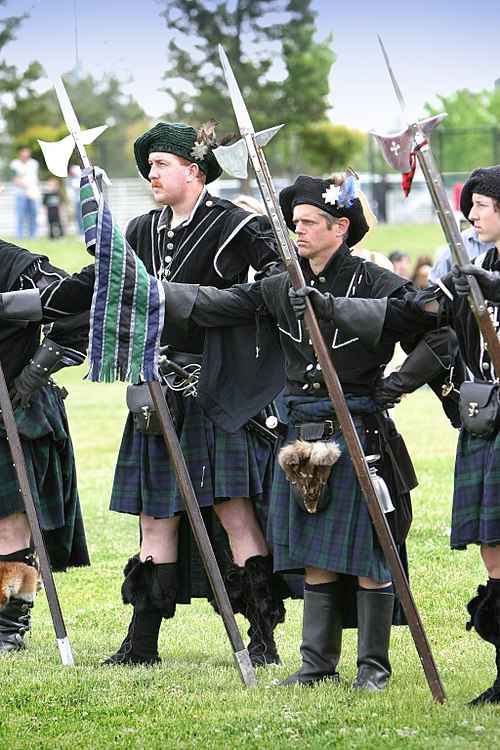Halberdnoun
A hand weapon consisting of a long pole fitted with a metal head; the head consists of a blade similar to an axe and usually a spike or hook.
Halberdnoun
An ancient long-handled weapon, of which the head had a point and several long, sharp edges, curved or straight, and sometimes additional points. The heads were sometimes of very elaborate form.
Halberdnoun
a pike fitted with an ax head
Halberdnoun
a combined spear and battleaxe.
Halberd
A halberd (also called halbard, halbert or Swiss voulge) is a two-handed pole weapon that came to prominent use during the 14th, 15th, and 16th centuries. The word halberd is most likely equivalent to the German word Hellebarde, deriving from Middle High German halm (handle) and barte (battleaxe) joined to form helmbarte.
Poleaxenoun
An ax having both a blade and a hammer face; used to slaughter cattle.
Poleaxenoun
A long-handled battle-ax, being a combination of ax, hammer and pike.
Poleaxeverb
(transitive) To fell someone with, or as if with, a poleaxe.
Poleaxeverb
(transitive) To astonish; to shock or surprise utterly.
Poleaxenoun
an ax used to slaughter cattle; has a hammer opposite the blade
Poleaxenoun
a battle ax used in the Middle Ages; a long handled ax and a pick
Poleaxeverb
fell with or as if with a poleax
Poleaxenoun
another term for battleaxe (sense 1)
Poleaxenoun
a short-handled axe with a spike at the back, formerly used in naval warfare for boarding, resisting boarders, and cutting ropes.
Poleaxenoun
a butcher's axe with a hammer head at the back, used to slaughter animals.
Poleaxeverb
hit, kill, or knock down with or as if with a poleaxe
Poleaxeverb
cause great shock to
Poleaxe
The poleaxe (also pollaxe, pole-axe, pole axe, poleax, polax) is a European polearm that was widely used by medieval infantry.







